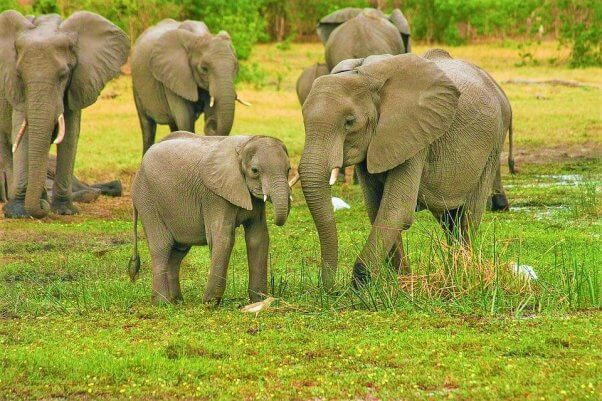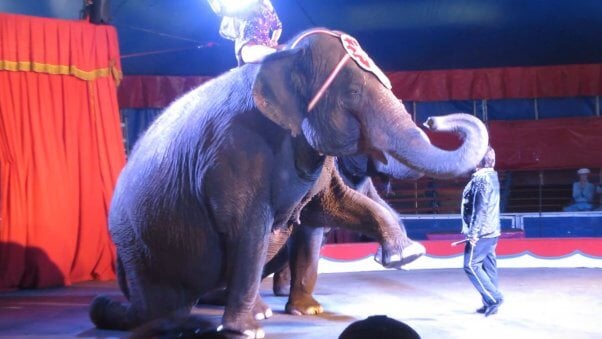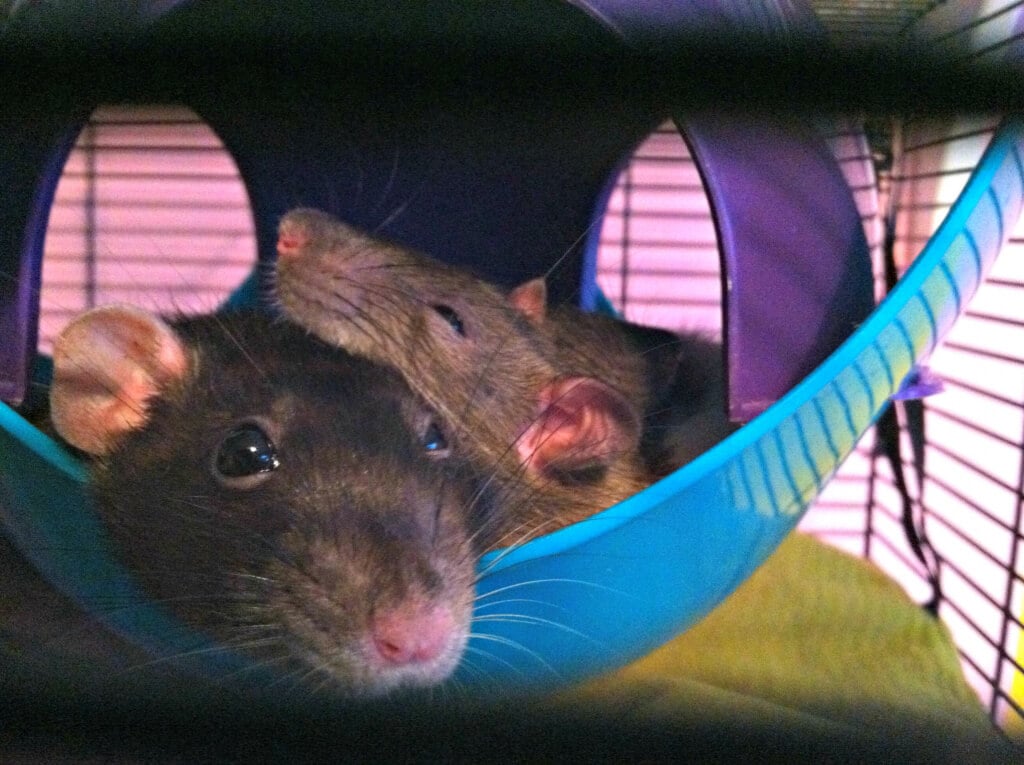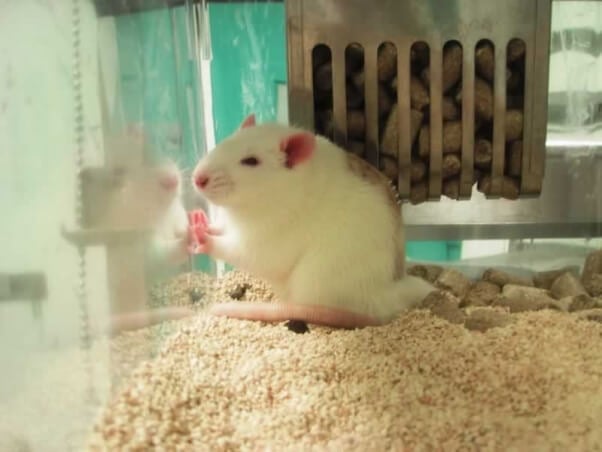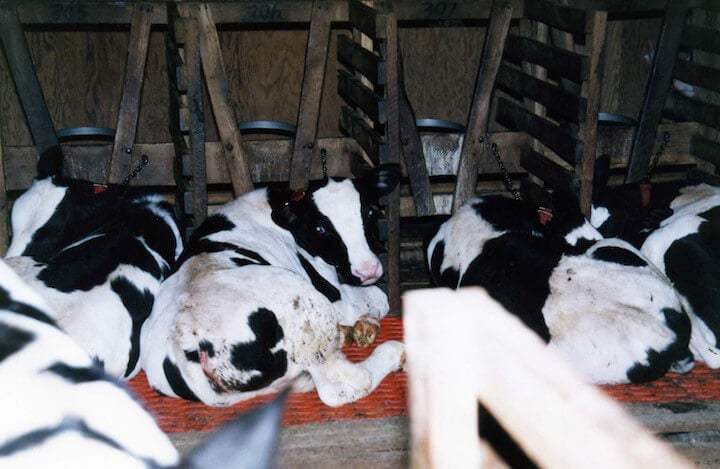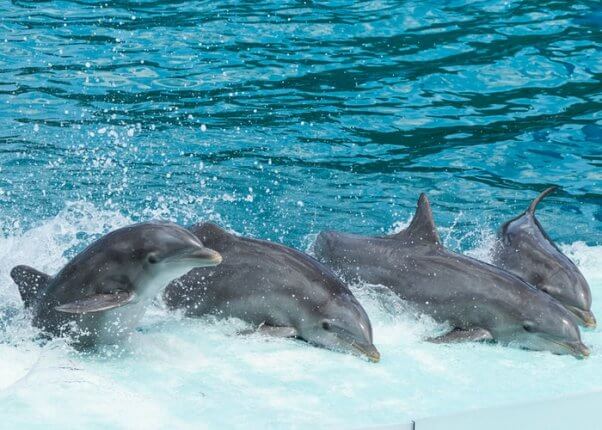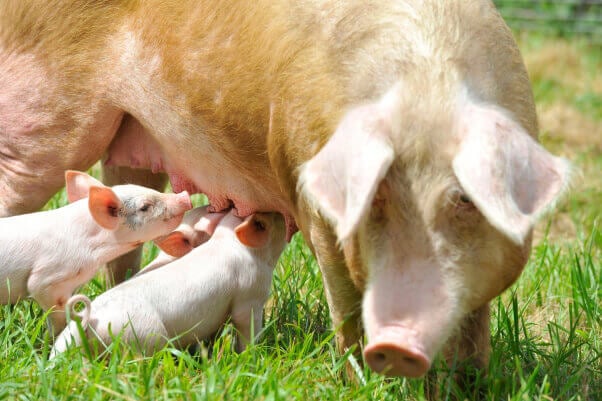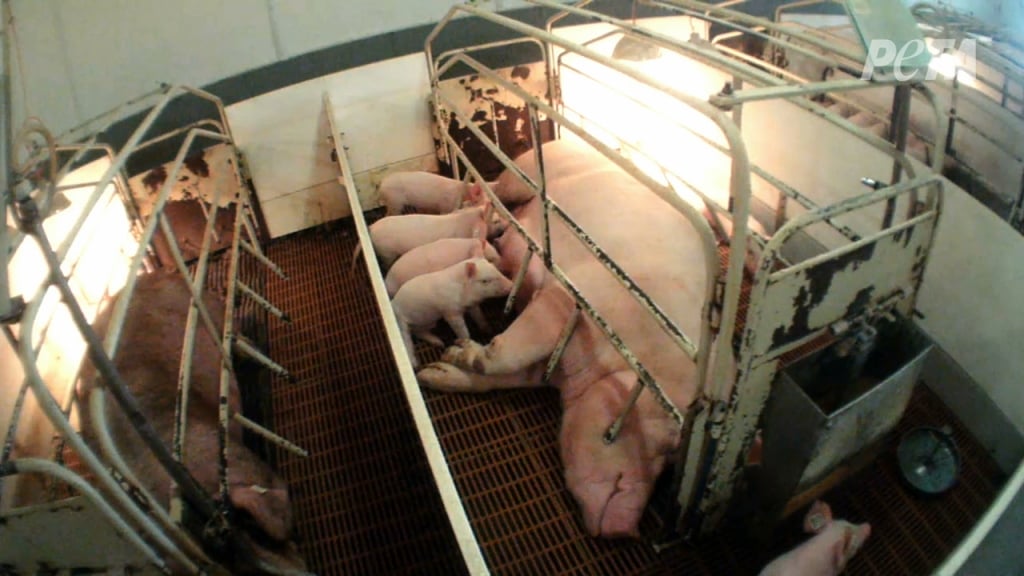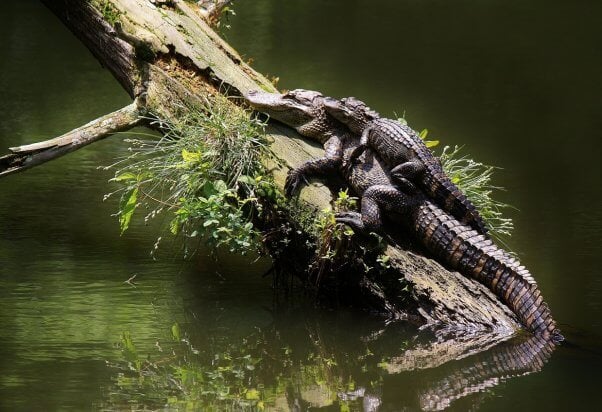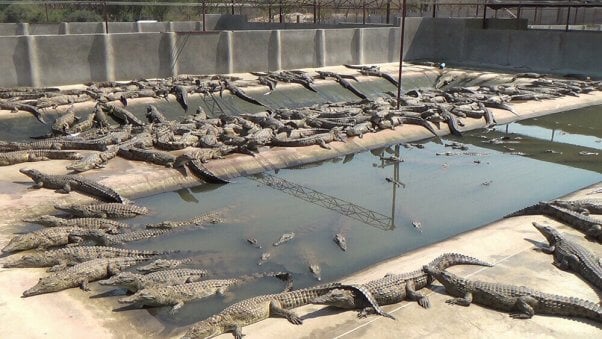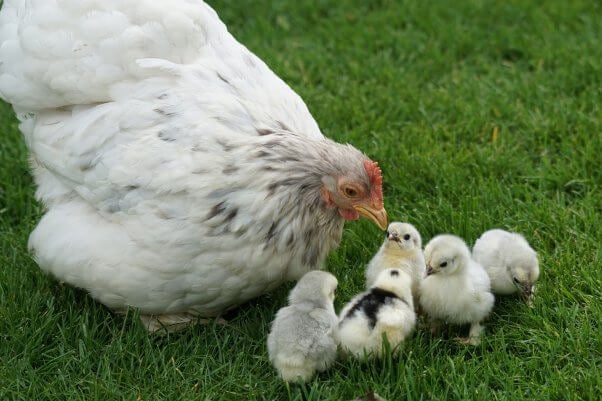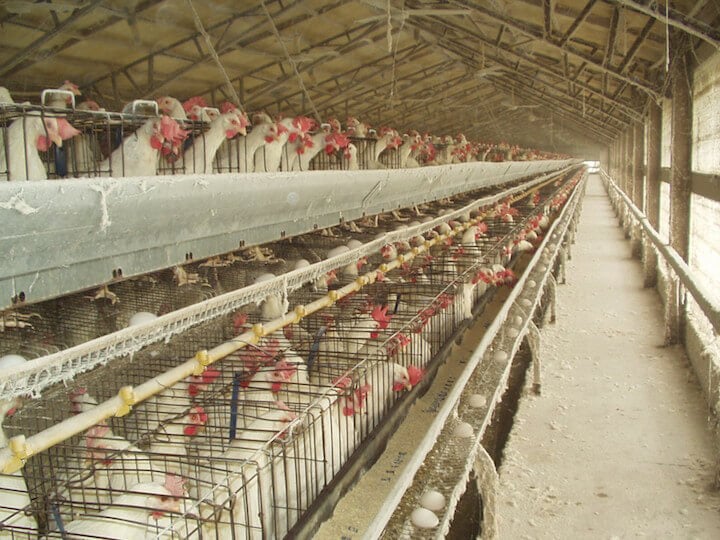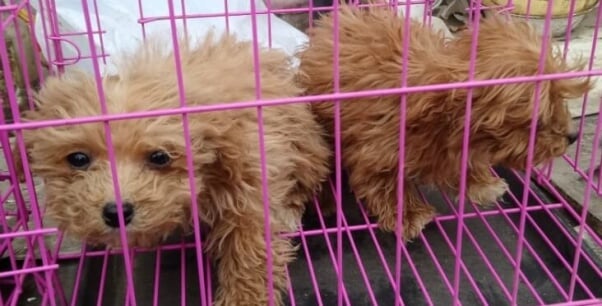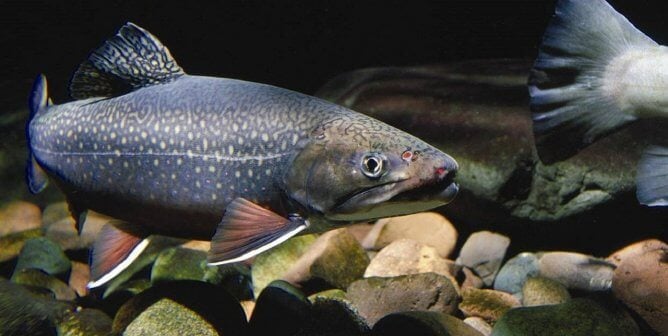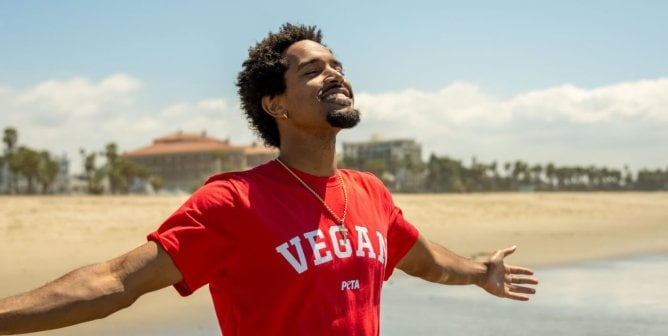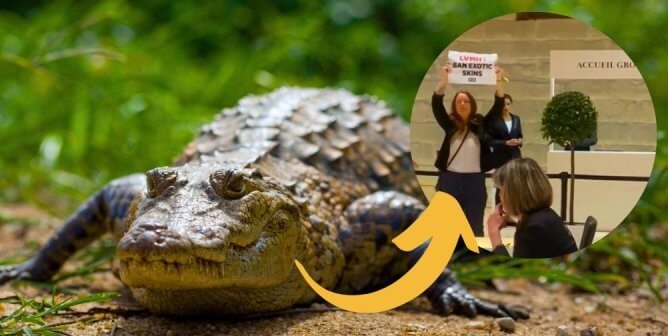Fun Facts About Animal Mothers and How You Can Help Them
All species of animal mothers, not just human ones, deserve recognition for all they do. They love and care for their babies and do everything in their power to protect them from danger and teach them how to survive. However, many industries that exploit animals take babies away from their loving mothers, robbing them of the opportunity to bond with each other.
Check out some facts about these animal mothers:
1. Elephants
Mother elephants are extremely affectionate and love to keep their babies (calves) by their side. In nature, males stay with their mothers until they reach their teenage years and females stay with them for their entire lives.
But not all elephants get to spend long, happy lives together. The geriatric elephants you see in circuses today were abducted from their Asian forest homes and their protective mothers as calves. Trainers beat them with bullhooks or shocked them with electric prods, forcing them to perform confusing and often painful tricks. Thanks in part to PETA’s work, elephants are no longer bred or trained for circuses in the U.S., but the abuse continues for those who are still forced to perform elsewhere and give rides.
2. Rats and Mice
These intelligent and empathetic animals go to great lengths to defend their nests and babies from danger. They form strong bonds with their offspring and value their families much like humans do.
Tens of millions of rats and mice suffer in U.S. laboratories each year. Experimenters subject them to painful and pointless tests. Suppliers often purposely breed them to suffer from debilitating conditions, including cancerous tumors, obesity, paralysis, a weak immune system, and high levels of anxiety and depression. The workers treat mothers, babies, and everyone in between as equipment instead of living beings who experience emotion and feel pain.
3. Cows
Cows and their calves form strong bonds with each other from the start. Much like humans, mother cows and their babies suffer from extreme distress when they’re separated. There are many accounts of mother cows who escaped their enclosures and traveled miles in search of their abducted calves.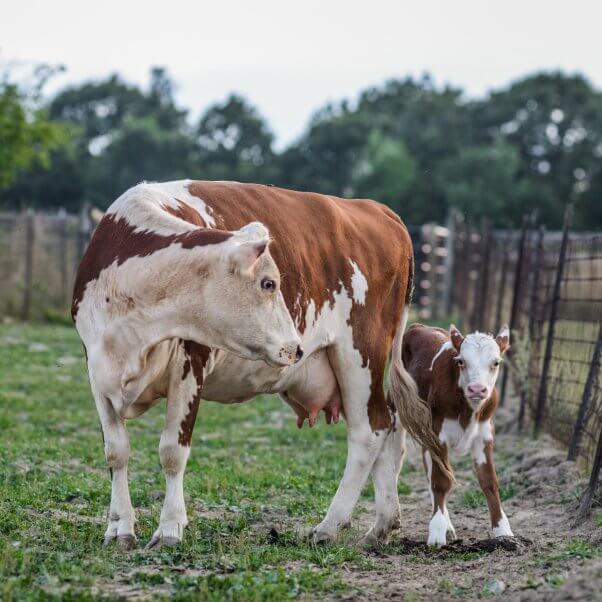
On dairy farms, workers forcibly impregnate cows so they’ll constantly produce milk. They take away the calves shortly after birth in order to steal the milk for human consumption. For female calves, the cycle of exploitation continues until their bodies give out. Male calves are usually destined for the slaughterhouse.
4. Dolphins
In nature, baby dolphins (calves) typically stay with their mothers for three to six years, learning how to avoid danger and navigate their aquatic home. If a mom loses her calf, she is able to mourn the loss on her own terms. Some grieving mothers have been seen carrying their dead calves for several days.
At places like SeaWorld, workers forcibly breed dolphins to ensure that they have enough of them to exploit for entertainment. Likely due to the stress of confinement at these abusement parks, pregnancy and labor are difficult for the mothers, some of whom die while giving birth, and many calves don’t survive to adulthood. These moms mourn the loss of their babies as their corpses are removed from the concrete tanks in which they’re imprisoned.
5. Pigs
Mother pigs (sows) form strong, loving bonds with their piglets from the moment of birth. Sometimes they sing to them while nursing, and newborn piglets learn to run toward the sound of their mother’s voice.
On farms, sows spend much of their lives in gestation crates so cramped they can’t even turn around. Just a few weeks after piglets are born, workers take them from their distraught mothers, chop their tails off, and clip the ends of their teeth off with pliers—without any painkillers.
6. Alligators and Crocodiles
Alligators and crocodiles are excellent mothers. They diligently protect their eggs and nests from predators. Once the babies are ready to hatch, they call to their mom to let her know. She then gently cracks open the eggs with her jaws and carries her babies safely to the water. Young alligators and crocodiles often stay with their protective moms for months or even years.
In the fashion industry, exotic-skins suppliers hatch thousands of alligators and crocodiles in bins on crowded farms. They never meet their mothers and rarely make it past 2 years old before workers slaughter and skin them.
7. Chickens
Nurturing begins in the nest for these caring moms. While chicks are still in their shells, their mother clucks softly to them so they learn to recognize her voice. Once they hatch, their devoted moms use their wings to shield them from predators and the elements.
Chickens exploited for their eggs, called “laying hens” by the industry, spend their lives crowded together inside wire cages with no room to spread their wings. This intense confinement can cause them to peck at each other out of frustration, so workers often cut off part of their sensitive beaks. Once their exhausted bodies no longer produce enough eggs, workers load the hens onto trucks and send them to slaughter.
8. Cats and Dogs
Breeders treat living, feeling individuals as commodities to genetically manipulate and forcibly use for profit. In the pet industry, many dogs and cats spend their lives constantly isolated in hutches, crates, and cages. Breeders take babies away from their mothers when they’re barely weaned—if not before—and this cycle is repeated until the moms’ bodies give out. Not only is breeding hard on mothers and their babies, it contributes to the companion animal overpopulation crisis and robs millions of animals in shelters of a chance at finding a permanent, loving home.
*****
This list covers just a few of the amazing animal mothers exploited by humans. If an industry uses animals, mothers and their babies suffer. All moms deserve respect, no matter their species.
Here are a few simple ways you can help animal moms:
- Never visit a circus that uses animals.
- Ditch dairy and choose vegan milk instead.
- Leave body parts stolen from pigs and other animals off your plate.
- Skip SeaWorld and other animal attractions.
- Only buy cruelty-free products.
- Only donate to medical charities that don’t fund experiments on animals.
- Always adopt—never buy animals.
- Wear vegan materials, not someone else’s skin.
- Opt for vegan eggs or tofu instead eggs stolen from suffering mother hens.
- Make the compassionate choice and go vegan.
